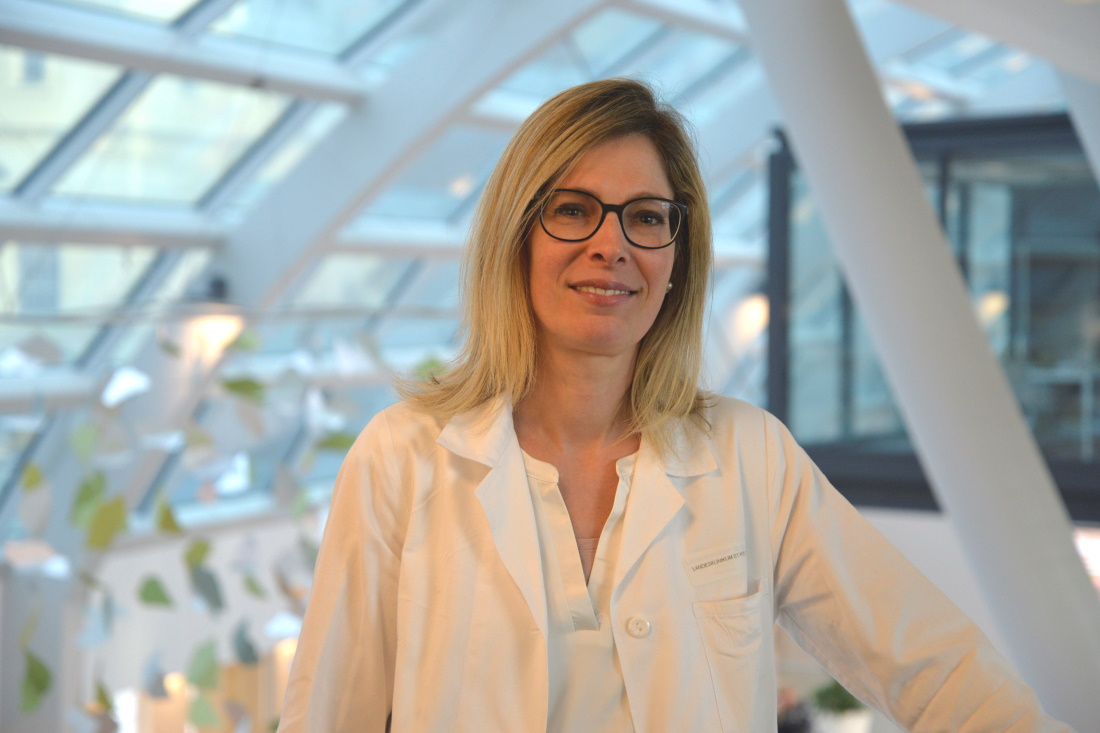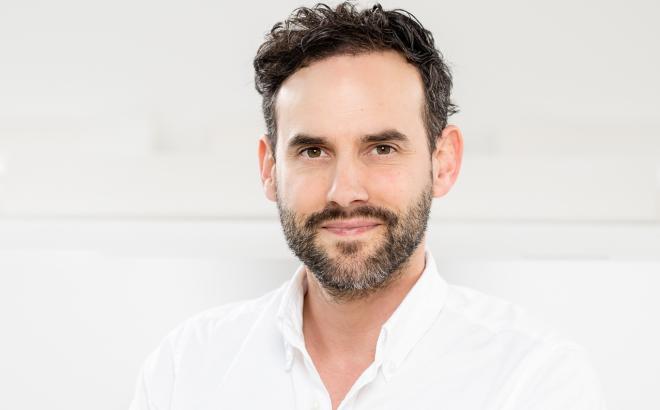Karin Pieber, Specialist in Physical Medicine and Rehabilitation
A broad discipline with many specialising options
“Physical medicine and rehabilitation hold such a broad array of subjects that it’s hardly possible to address everything in full,” chief physician Dr Karin Pieber, PhD enthuses about the manifold fields of activity in her discipline. Head of the Clinical Institute of Physical Medicine and Rehabilitation at the University Hospital of St Pölten, she is always keen on innovative ideas and developments. Together with her multi-professional team, she could already implement a lot and emphasises how important the close collaboration between doctors, therapists and administration staff is. “The premium, state-of-the-art equipment and the generously spaced facilities of the institute perfectly support our work here.”
In addition to a general outpatient clinic, she promotes special outpatient clinics in electroneurophysiology, ultrasonic diagnostics, shock wave therapy and medical training therapy. Oncological rehabilitation also plays a key role with the institute being part of the hospital’s breast health centre. Caring for patients and employees suffering from long COVID represents the most recent core area.
Karin Pieber received her PhD at the Medical University of Vienna (MUW). After completing her studies at the University Hospital of Physical Medicine and Rehabilitation (MUW and University Hospital Vienna AKH), she worked at the clinic in Pirawarth and the rehabilitation centre Weißer Hof. In 2007, she completed her specialty training and was Senior Physician at the Medical University of Vienna until 2016. “My time at the AKH strongly influenced me, also writing many of my publications then.” From 2014 to 2015, she completed the postgraduate course “Hospital Management” at the University for Continuing Education Krems. At the beginning of 2017, Dr Pieber becomes professor and was appointed head of the Clinical Institute in St Pölten in 2020. “Here at the University Hospital, they are always very receptive to innovative ideas. Currently, I am missing my research activities a little, I just haven’t found the time so far,” Prim Pieber explains. Her long-term goal is to foster and expand research at the institute: “During my own education, you could pass with an optional subject to avoid writing a dissertation. It’s different today and all young doctors were already confronted with research work during their studies – a positive development.” In Prim Pieber’s day-to-day life, the subject of professional training and teaching plays a central role: “Supervising master's theses and PhDs consumes a lot of energy and time, but with committed students, I really do like it. The latest thesis even led to a direct practical implication. It further strengthened the interdisciplinary cooperation with the intensive care unit, which pleases me personally very much.”
The physician not only appreciates the working climate at the University Hospital of St Pölten, but also praises the opportunities the Karl Landsteiner University offers: “The statistics staff and the funding instruments of the research incentives support us in our research activities. What’s more, I, for myself, receive a lot of input from the KLPU’s mentoring programme and the leadership programme of the Lower Austrian Health Agency LGA NÖ.” There is one big common goal across the many specialised fields in physical medicine and rehabilitation, both in clinical practice and research. Prim Pieber details the paramount target: “We want to avoid inpatient treatment, long-term care and chronic issues and help patients to keep or regain their personal activity. To achieve this, we closely cooperate with other departments and participate in projects with the LGA NÖ.”
In January 2024, Dr Karin Pieber takes over the Medical Directorate of St. Pölten University Hospital on an interim basis and is officially appointed as the new Medical Director on 1 May 2024.
Link to the KL research information system KRIS





